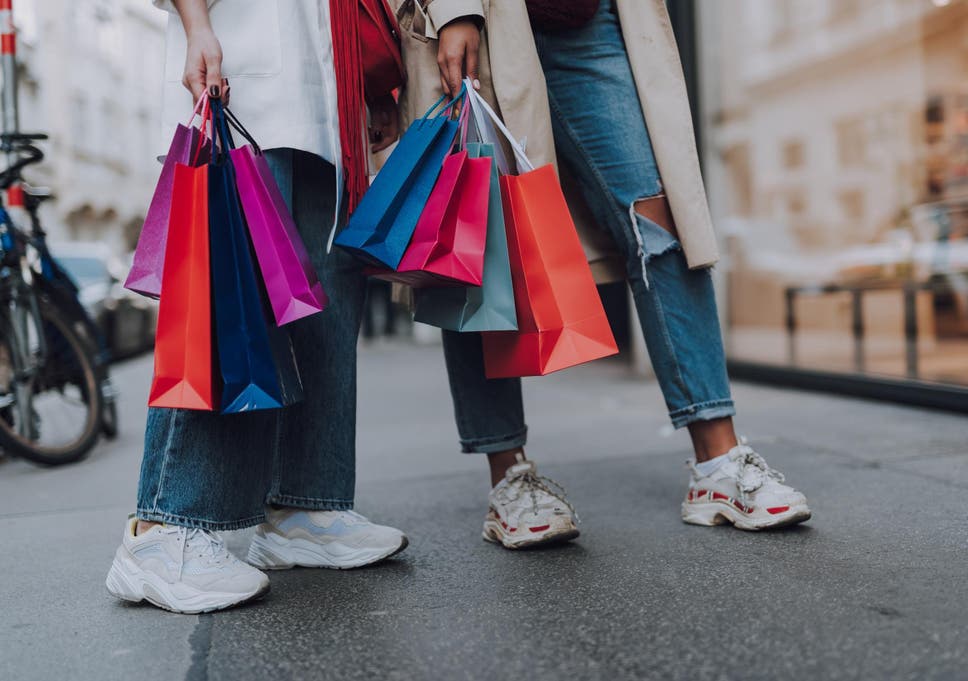
Non-essential shops to reopen: What shops will it include and when will it happen?
Boris Johnson has said all non-essential shops in England will be open by 15 June
by Sophie GallagherThe government has unveiled a full list of the shops which will be allowed to reopen in England under new guidelines from 15 June.
The measures are part of the second phase in Boris Johnson’s roadmap to easing lockdown, first announced on 10 May, following eight weeks of the “stay at home” message.
Although ministers were keen to stress that if the R-rate – the average number of people infected by each person with Covid-19 – goes up again, the provisional plans could change again.
Appearing on BBC Breakfast on Tuesday, Michael Gove said customers should not expect things to return to normal, saying shoppers will have to “exercise restraint” by not trying on clothing or testing goods like make-up during their browsing.
“It’s also the case that we need to ensure that some of the shopping habits people may have grown used to in the pre-Covid days are habits that we exercise a degree of restraint on,” he added. “It is a new normal, but it will allow us to ensure there are a wider range of goods and will also ensure the economy can return to a new normal.”
Which shops will be open?
Mr Johnson has already said from 1 June outdoor markets and car showrooms could be the first non-essential retailers to open their doors in England, and has now outlined those businesses expected to open two weeks later on 15 June.
These include food retailers, chemists, hardware and homeware stores, fashion shops, charity shops, betting shops and arcades, tailors, dress fitters and fashion designers, car dealerships, auction houses, retail art galleries, photography studios, gift shops and retail spaces in theatres, museums, libraries, heritage sites and tourism sites, mobile phone stores, indoor and outdoor markets, craft fairs and “similar types of retail”.
These businesses are now largely indoor retailers, which signifies a move to the next stage in lockdown lift. Previously, on 13 May, the government only permitted businesses that were primarily outside – like garden centres – to open.
How will this change the current situation?
Since 23 March the only shops that have been permitted to continue trading have been those deemed “essential” such as supermarkets and grocery stores, pharmacies, banks, hardware stores, petrol stations, vets and pet stores, food markets and bike shops.
Days after the original announcement, it also confirmed that off-licences and other licensed shops selling alcohol, including those in breweries, could stay open.
Restaurants, pubs, cafes and other hospitality services are not yet being given the go ahead to reopen – they are expected to come under the third phase of lockdown lift, beginning in July.
The reason for the delay is because of the nature of those businesses which encourage close contact and socialising. Food outlets are now able to serve takeaway and delivery.
What will the new shopping rules be?
Mr Johnson said that before shops open, and workers return, businesses need to ensure they have enforced measures to become a Covid-secure workplace.
He said: “I want people to be confident that they can shop safely, provided they follow the social distancing rules for all premises.”
The new rules, provided online, include 14 strict measures that all shops and branches must adhere to before being allowed to reopen.
These are: define the number of customers that can reasonably follow two metres social distancing within the store and identify “pinch points” or busy areas, limit the number of customers in a store (and in doorways), encourage customers to use hand sanitiser or handwashing facilities as they enter and stop customers handling any products.
They also say customers should be encouraged to shop alone where possible, remind customers with children to supervise them at all times, implement queue management and one-way systems, change exit and entrances to be one-way, provide bike racks or additional parking to encourage customers not to use public transport.
Shopping centres have been told to take responsibility for ensuring communal areas do not become too congested, and businesses surrounded by other shops should work together to implement policies like staggered opening times.
The British Retail Consortium (BRC) and shop workers’ union Usdaw have also drawn up a series of recommendations in readiness for the easing of the lockdown with the suggestion of closing or limiting access to changing rooms, employing security guards to manage entrances and encouraging customers to pay by card.
Individual businesses, like the Arcadia group which owns Topshop, Burton and Dorothy Perkins, have also suggested they will implement their own rules.